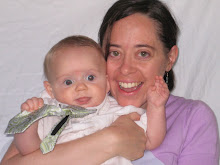Christmas List 2010
- BundleMe for Henry (so I can jog with him in the morning in the winter).
- Tumbuk2 bag, like Christy's. (My research indicates their new bags are not so great; so here's a link to one of their old bags. I like the light blue/dark blue combination.)
- Religious piano solos book. Any of the classics are great.
- Fun (and plastic) Christmas plates! Like these, these, or these.
- Babysitting so Matt and I can go to the temple. (Or even so I can go alone during the day...)
- These bowls.
- Scrapbook paper! I like the packs with lots of variety.
- The Great Divorce, by C.S. Lewis.
- A puzzle. 500 to 1000 pieces. Super cool picture. NOT crazy hard.





